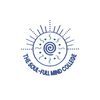
Geraldine Milton
Clicking on the Send Me Details Now button opens an enquiry form where you can message Geraldine Milton directly
Integrated Energy Healing - Reiki
Focus areas
About Reiki
In 1989 and 1992. I was initiated into the traditional Reiki practice of Usui Shiki Ryoho 1 & 2, (loosely translated as Usuis System of natural healing for mind and body) which was brought from Japan to Western culture in the mid 1930s. This style of Reiki has become widely known and taught for many years, and can be referred to as the Western tradition.
Mikao Usui (1865 1926) is today regarded as the modern-day founder of the practice, and it is Usui that gave the practice the Japanese name of Reiki (meaning universal life force) which is so well known today.
Reiki Jin Kei Do
We now know that the Western-style practice of Reiki is a much-simplified form of a more ancient practice originating at least two thousand five hundred years ago of which Usui was probably unaware . This was not only a healing practice, but was a complete system for spiritual development and well-being in fact, a way of life incorporating other significant aspects, such as meditation and a system of exercises. Originating from this ancient form of practice is a particular style of Reiki now known as Jin Kei Do
What does Jin Kei Do mean?
Jin Kei Do is the name given to this Lineage by the present lineage bearer, Dr. Ranga Premaratna. From Japanese, these words translate as follows: Jin means compassion, Kei means wisdom, whilst Do means path or way of life. Compassion is a significant aspect of this form. Reiki in fact originates from a much older system known as Buddho (now known as Buddho/EnerSense) which is a combination of healing practice, meditation practice, and moving meditation exercises called Chi Nadi which help develop a further awareness of energy, as well as mental clarity and mindfulness.
I was initiated into both Level 1 and 2 of this beautiful practice about 12 years ago
What are the differences between these traditions of reiki?
For purposes of clarity, we can refer to Jin Kei Do as the Eastern tradition of Reiki and Usui Shiki Ryoho, which is the form widely practised and taught throughout the world, as the Western tradition.
The routines of hand positions that are taught in this form are a little more specific in that they focus on the bodys system of energy centres (chakras), energy channels (nadis), and energy concentration points (marmas).
Benefits of Reiki
Research has shown extensive beneficial effects of relaxation and stress reduction including reduction in: anxiety; blood pressure; cholesterol levels; blood pressure and heart rate; cortisol levels; and reduced aggression, or reliance on prescribed or non-prescribed drugs and alcohol. There are generally increases in: immune function; optimism; self awareness; coping; wellbeing; improved sleep; greater efficiency and concentration. (In Hassad C. 2000, New Frontiers in Medicine).
People I have treated that said they benefited greatly from Reiki included those undergoing radiotherapy and/or chemotherapy and following surgery; or those with chronic health problems like anxiety and depression, post traumatic stress, chronic fatigue, multiple sclerosis, Parkinsons disease. Individuals recovering from drug and alcohol addiction that I given Reiki to have experienced significant benefits in the recovery process, in particular with helping them during the withdrawal phase.
Reiki usually just feels good, and is generally experienced as a wonderful, nurturing, relaxing therapy.
Call Geraldine to book your first session today!
Nearby Practitioners
View all
Qt
Focus areas

Holistic Psychology
Focus areas

The Soul-Full Mind College
Focus areas

Annie O'Grady, Certified EFT Practitioner and Master Trainer
Focus areas

Beth Little - Mind and Body
Focus areas
Click on Send Me Details Now to get started
Send Me Details Now